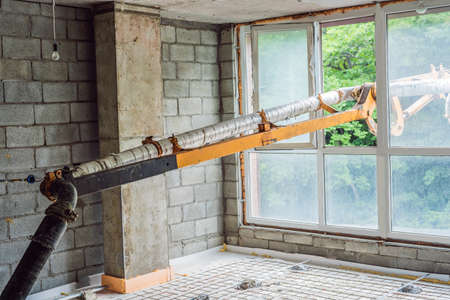Understanding Tenant Expectations in India
In India, the rental landscape is shaped by deep-rooted cultural values and practical needs that set it apart from many other markets. To ensure tenant happiness and smooth tenancy, landlords must first understand what Indian tenants truly expect from their rented homes. At the core of these expectations is the concept of family-centric living. Most Indian tenants look for properties that can comfortably accommodate not just the immediate family, but often extended relatives as well. Spacious living rooms, multiple bedrooms, and communal spaces are highly valued, reflecting the importance of togetherness in Indian culture.
Another unique aspect is the widespread preference for Vastu Shastra compliance—a traditional architectural philosophy believed to bring harmony and prosperity. Tenants may seek homes with specific orientations or features, such as an east-facing entrance or a kitchen located in the southeast corner. Understanding and accommodating such requirements can greatly enhance tenant satisfaction and trust.
Community harmony also plays a significant role. Indian tenants often prioritize neighborhoods with a strong sense of community, where festivals are celebrated together and neighbors support one another during life events. Proximity to places of worship, local markets, and schools further adds to the appeal of a rental property. By recognizing these cultural nuances and being responsive to them, landlords can foster lasting relationships with tenants, reduce conflicts, and create homes that truly resonate with Indian families.
Communication Between Landlords and Tenants
Open and transparent communication is the backbone of a happy rental relationship in India. Both landlords and tenants can avoid most common disputes by setting expectations early and adopting practical habits, especially when it comes to digital communication like WhatsApp, which is widely used across the country.
Effective Communication Practices in Indian Rentals
Many rental misunderstandings arise due to unclear messages or delayed responses. The best practice is to use simple Indian English—clear, polite, and respectful. Always double-check your tone to ensure it reflects mutual respect, whether you are discussing rent, repairs, or house rules. Timeliness matters too: replying promptly signals reliability and builds trust between both parties.
WhatsApp Etiquette for Landlords and Tenants
WhatsApp has become the go-to platform for quick fixes and daily updates. However, good etiquette ensures smoother interactions:
| Situation | Best Practice |
|---|---|
| Reporting Maintenance Issues | Send clear photos with a short message (e.g., “Leak in kitchen tap, kindly check.”) |
| Requesting Permission | Use polite language (“May I please install an AC unit?”) and await a response before acting |
| Payment Reminders | Landlords should send reminders a few days before due date; tenants should confirm once paid (“Rent paid for June, please confirm receipt.”) |
| Urgent Situations | Use calls for emergencies after a WhatsApp message if there’s no quick reply |
Fostering Trust for Smoother Rentals
The real secret to tenant happiness is trust. Landlords who keep promises—like fixing minor repairs on time—and tenants who are upfront about their needs create a positive atmosphere. It’s also wise to document all major agreements over WhatsApp or email for future reference. This approach not only prevents confusion but also sets the foundation for long-term, stress-free rentals.

3. Quick-Fix Solutions for Common Maintenance Issues
In the Indian rental market, tenants often face recurring maintenance issues like leaky taps, sudden power cuts, and pest invasions. Finding affordable and practical solutions is crucial for tenant happiness. Here are some popular jugaad (innovative fix) techniques widely used across India:
Leaky Taps and Plumbing Woes
A dripping tap is a common headache in many Indian households. Rather than waiting days for the plumber, many tenants use temporary fixes such as tying a rubber band tightly around the leaking area or using M-Seal (an easily available waterproof sealing compound at local hardware stores). For loose fittings, teflon tape can be wrapped around threads to prevent leaks—cheap, fast, and effective until professional help arrives.
Power Cuts and Electrical Glitches
Power cuts are frequent in several Indian cities. Tenants typically keep emergency LED bulbs charged, which provide hours of light during outages. Extension cords with surge protectors help manage overloaded circuits safely. For faulty switches or sockets, insulating tape can offer a temporary barrier until repairs are made. Always ensure that any electrical jugaad prioritises safety.
Pest Control on a Budget
From cockroaches to ants, pests are an unwelcome reality in many rented homes. Tenants often rely on tried-and-tested Indian remedies: sprinkling boric powder near entry points, using neem oil sprays, or placing camphor tablets in cupboards. These cost-effective options deliver quick relief without the expense of professional pest control services.
The Spirit of Jugaad
Indian tenants excel at jugaad solutions—making do with what’s available and solving problems creatively. Whether it’s fixing a broken latch with spare wire or using old newspapers to seal window gaps, these resourceful methods not only save money but also reduce stress for both tenants and landlords.
Tenant Empowerment Through DIY
Empowering tenants with knowledge of simple repairs encourages self-sufficiency and enhances satisfaction. Many Indian landlords appreciate proactive tenants who handle minor issues independently, creating a win-win situation and fostering a more harmonious rental experience.
4. Navigating Repairs and Service Providers
Finding trustworthy repair professionals is a top concern for tenants across India, especially when it comes to urgent fixes in your rented home. A quick response to plumbing leaks, electrical faults, or appliance breakdowns not only ensures tenant happiness but also keeps relationships smooth with your maalik (landlord). Here’s a practical guide to help you navigate the world of repairs and service providers efficiently.
Identifying Reliable Service Providers
Word-of-mouth recommendations still hold strong in Indian communities. Start by asking your landlord if they have a preferred plumber, electrician, or carpenter—they often know experienced professionals who are familiar with the property. Alternatively, neighbours can be an excellent source of trusted contacts, ensuring that you get someone who has already proven their reliability locally.
Maalik-Approved vs. Neighbour-Recommended
| Source | Advantages | Considerations |
|---|---|---|
| Maalik-Approved | Knows property history May offer better rates |
Might not be available at short notice |
| Neighbour-Recommended | Quick response Likely nearby and prompt |
May not have prior experience with your specific property setup |
Using Popular Indian Home Service Apps
If you’re new to the city or need a fix on short notice, several Indian apps connect tenants with verified repair professionals. Some popular choices include:
- UrbanClap (now Urban Company): Wide range of services including plumbing, electrical work, and appliance repair.
- Housejoy: Quick booking for home maintenance tasks with background-verified experts.
- Sulekha: Extensive listings of local service providers based on customer ratings.
- NoBroker Services: Great for tenants who want a “no brokerage” approach along with reliable repairs.
Pro Tip: Always Check Reviews & Ratings!
Before finalizing a service provider from an app or local reference, review their ratings and recent customer feedback. This helps ensure professionalism and quality workmanship—key factors for stress-free living in your rental home.
Enhancing Rental Homes for Better Value and Comfort
Improving the comfort and value of rental homes in India doesn’t always require a huge investment. With a few simple upgrades, tenants and landlords can create more inviting, practical, and culturally resonant living spaces that contribute to greater satisfaction. Here are some effective strategies tailored for Indian rental properties.
Install Ceiling Fans for Immediate Relief
Ceiling fans are an essential feature in most Indian homes due to the tropical climate. Adding or upgrading ceiling fans can instantly enhance comfort during hot months, helping tenants feel at ease without heavily relying on air conditioning. Choose energy-efficient models to reduce electricity bills while keeping the home cool.
Boost Ventilation for Healthier Living
Good airflow is crucial in India’s varied climates, from humid monsoons to dry summers. Landlords can improve ventilation by installing exhaust fans in kitchens and bathrooms or using window screens to keep out insects while letting fresh air circulate. Tenants can also use portable air purifiers or indoor plants like tulsi (holy basil) to naturally refresh the space.
Add Regional Decor Touches
Personalizing the space with local decor elements not only makes a rental feel homely but also celebrates India’s rich cultural diversity. Consider adding colourful cushion covers, handwoven rugs, or wall art representing regional crafts such as Madhubani paintings, Rajasthani jharokhas, or Kerala mural prints. Such touches foster a sense of belonging and pride in one’s heritage.
Improve Lighting for Ambiance and Utility
Proper lighting transforms any living space. Replace harsh tube lights with warm LED bulbs or add decorative lamps for a cozier atmosphere. String lights or lanterns can create a festive feel during Indian celebrations like Diwali or Eid, making tenants feel more connected to their traditions.
Smart Storage Solutions
Many Indian rentals face storage challenges. Simple additions like modular shelves, multipurpose furniture, or under-bed storage boxes help maximize space and reduce clutter. This ensures that even compact apartments remain functional and comfortable.
By implementing these easy yet impactful changes, both tenants and landlords can enhance the living experience in Indian rental homes—boosting happiness, property value, and long-term satisfaction for everyone involved.
6. Tenant Rights and Responsibilities in India
Understanding Indian Tenancy Laws
For a happy and stress-free rental experience, every tenant in India should be aware of the key tenancy laws that govern their rights and obligations. The Rent Control Act, which varies state by state, is the backbone of rental regulations. It ensures fair rent, protection against arbitrary eviction, and proper maintenance by landlords. Always check the local version applicable to your city—like the Maharashtra Rent Control Act or the Delhi Rent Control Act—to understand your legal standing.
Rent Agreements: Your Safety Net
A registered rent agreement is essential for both tenants and landlords. This document should clearly specify the monthly rent, security deposit amount, duration of tenancy, maintenance responsibilities, and notice period. In India, standard notice periods are usually 1-3 months for either party. Insist on a written agreement stamped as per local law—it’s your strongest safeguard if disputes arise.
Notice Periods: Plan Ahead
Notice periods give both tenant and landlord time to plan moves or address issues. As per most agreements, providing written notice—via email or letter—is crucial. Ensure you get an acknowledgment to avoid future confusion.
Do’s and Don’ts for Hassle-Free Renting
- Do: Inspect the property before moving in; document any existing damages.
- Do: Pay rent on time via traceable means (bank transfer/UPI).
- Do: Communicate maintenance needs early and keep records.
- Don’t: Sublet without landlord’s permission; it may violate your agreement.
- Don’t: Make structural changes without written consent from the owner.
Empowering Tenants for a Smoother Journey
Awareness is key to tenant happiness. By understanding your legal rights, fulfilling your responsibilities, and maintaining transparent communication with your landlord, you can enjoy peace of mind throughout your stay—whether you’re renting a flat in Bengaluru or a villa in Hyderabad. Stay proactive, keep paperwork in order, and always seek amicable solutions first for a truly hassle-free Indian rental experience.

